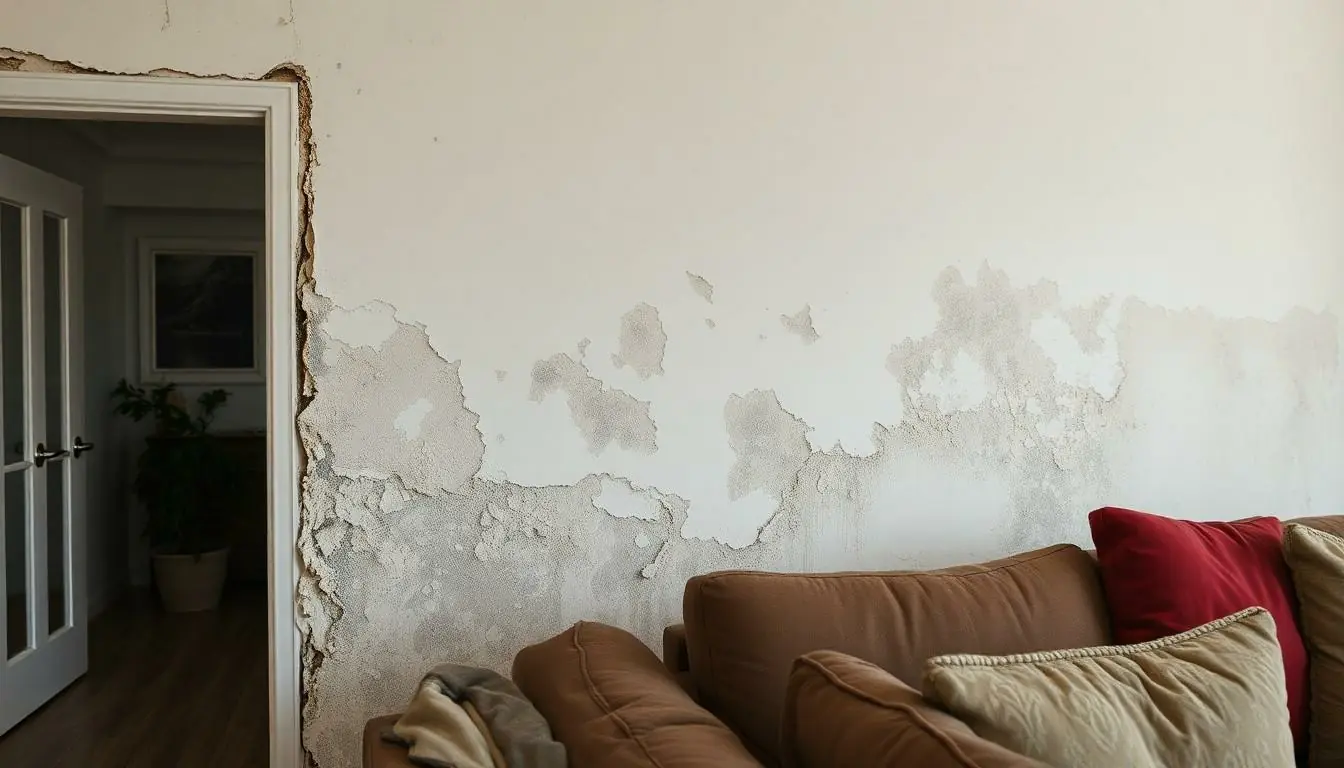Mold: the unwelcome houseguest that shows up uninvited and refuses to leave. Just when you thought your home was a safe haven, this sneaky fungus can turn your cozy corners into a damp disaster zone. But before you panic and start a mold eviction party, it’s time to ask the burning question—will home insurance come to the rescue?
Table of Contents
ToggleUnderstanding Home Insurance Coverage
Home insurance protects against various risks, covering damage to property and personal belongings. Mold-related issues often arise, prompting questions about policy specifics.
Definition of Home Insurance
Home insurance refers to a type of property insurance that provides coverage against losses or damages to a residence. It typically includes financial protection against events like theft or natural disasters. Homeowners purchase policies to safeguard their investments and secure peace of mind. Coverage generally extends to both the dwelling and personal property within it. This insurance product varies in terms of coverage limits and types of incidents covered.
Common Inclusions and Exclusions
Home insurance policies often include protection for damages caused by specific events, such as fire, windstorm, or vandalism. Standard policies may cover mold caused by sudden water leaks. Exclusions frequently include mold growth resulting from long-term water damage or neglect. Policies might also limit coverage for high-cost repairs related to mold remediation. Homeowners should review their policy to understand what’s included and what’s not, enabling informed decisions regarding additional coverage options.
Mold Coverage in Home Insurance

Mold damage can significantly affect homes. Understanding how home insurance addresses mold issues is essential for homeowners.
Types of Damage Typically Covered
Home insurance often covers mold resulting from sudden water leaks. For example, a burst pipe causing immediate water exposure could qualify for coverage. Policies may pay for mold remediation in these scenarios. Those who encounter damage due to natural disasters, like storms that cause roof leaks, may also find relief through insurance. Coverage typically extends to necessary repairs and cleanup to restore the home.
Situations Where Coverage May Be Denied
Home insurance often denies coverage for mold caused by neglect. If homeowners fail to address long-term moisture issues, insurers may consider them responsible. Mold growth from untreated leaks over time frequently falls outside policy protections. Insurers also typically exclude coverage for mold attributed to poor maintenance or lack of ventilation. It’s crucial to read the policy carefully, as exclusions vary by insurer and can influence the claims process significantly.
Factors Affecting Mold Coverage
Mold coverage in home insurance depends on several key factors. Understanding these allows homeowners to make informed decisions regarding their policies.
Policy Variations
Insurance providers offer different policy variations, impacting mold coverage significantly. Some policies explicitly include mold damage caused by sudden incidents, like water leaks. Others might impose limits on coverage based on specific scenarios. A homeowner’s location can also influence these variations. Those in high-risk areas may find enhanced exclusions or higher premiums. Reviewing the specific policy details is essential for clarity, as coverage differences can affect financial protection.
State Regulations and Guidelines
State regulations play a crucial role in mold coverage policies. Each state has its own laws governing insurance practices, including mold-related coverage requirements. Some states mandate certain protections, while others allow flexibility for insurance companies. Knowing local regulations helps homeowners understand their rights and obligations regarding mold claims. Policyholders should consult state insurance departments for guidance on regulations that might impact their coverage. Understanding these nuances aids in navigating potential challenges during the claims process.
Steps to Take if You Discover Mold
Finding mold in a home requires immediate action. Homeowners should act quickly to mitigate further damage and protect their property.
Documenting the Damage
Begin by taking photographs of the mold and any affected areas. Capture images from different angles to provide a comprehensive view. Write down the date and location of the mold discovery for reference. Note any water sources or conditions that could have contributed to the growth. Observations regarding the extent of the issue also prove valuable. Create a detailed inventory of damaged items, as this can support insurance claims. Documentation not only aids in the remediation process but also strengthens discussions with insurance providers.
Contacting Your Insurance Provider
Reach out to the insurance provider as soon as mold is discovered. Discuss the details of the situation and provide the documentation collected. The insurance representative can explain coverage specific to mold issues. Understand the claims process and what information is required for a successful claim. Prepare to answer questions about how and when the mold appeared. Initiate clear communication to ensure all aspects are covered during discussions. Record important details from the conversation for future reference.
Homeowners facing mold issues should be proactive in understanding their insurance policies. While some home insurance plans may cover mold resulting from sudden incidents like water leaks, many exclude coverage for mold arising from neglect or long-term moisture problems. It’s essential for homeowners to review their policies carefully and consider additional coverage options if needed.
State regulations can also play a significant role in determining mold coverage, so being aware of local laws is crucial. By documenting any mold damage and communicating effectively with their insurance provider, homeowners can navigate the claims process more smoothly. Taking these steps can help ensure that they’re adequately protected against the financial implications of mold in their homes.



